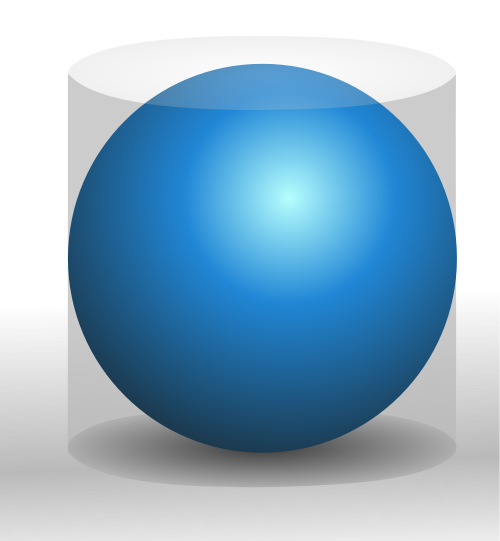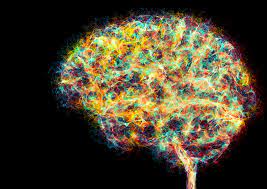TBF this doesn’t have anything to do with sexism, it’s just general incompetence. Listening to the lungs with a stethoscope would have been enough to notice that something was very wrong.
Thalamus
- 13 Posts
- 15 Comments

 52·1 year ago
52·1 year agoThere’s this docu series on netflix (unnatural selection) about genetic engineering in general but also about some people (with and without science background) who believe that anyone should be able to do genetic engineering at home (Josiah Zayner is one of them, i believe he still sells lab equipment and reagents for anyone who want to do some DIY bio-engineering). They also follow this guy who stopped taking his HIV meds and started using some kind of antibody that was developed by some shady company (it didn’t work and guess what; not a single physician was involved). I believe one of these shady guys was found dead in a sensory deprivation pod with ketamine in his blood.

 2·1 year ago
2·1 year agoI think I understand what you’re saying. I have a medical background as well and I guess clinicians mostly use the results of (neuro)science in their work. Neuroscience can seem as one big field but many labs do exclusively mol. biology work, others work exclusively on developing theories/models, others focus on functional imaging. Even within the computational field, there are multiple subfields. These people often have very different backgrounds so not every neuroscientists will be able to do wet lab stuff, computational work is often done by physicists, engineers or mathematicians, … Everything is so specialised and crossing over from wet lab stuff (near zero math/physics experience) to computational work is extremely difficult so scientists often need to choose a field to focus on early in their career. It’s not as simple as running some simulations or doing some modelling for a specific question. For example some neuroscientists with a psychology background do functional imaging studies (fMRI, EEG, …) but if they would have a certain hypothesis that would require wet lab stuff, they would probably not have the knowledge or tools to do this. There are very few neuroscientists who know their way around all these different fields.
I’m more interested in the ‘fundamental’ questions in neuroscience, how information is represented and processed, how consciousness can be defined and studied, how memory works, … These topics can be approached in multiple ways. For example memory requires both knowledge of the biochemical/cellular pathways and the mathematical/computational aspects so wet lab skills and computational skills could both be valuable. I’m wondering which field will be most likely to come up with some groundbreaking discovery.
White bread, cheese (at least not the one on burgers) and red meat aren’t exactly known as healthy foods. Definitely not in the proportions of a burger. Even more definitely not when you boil the meat in oil (often together with the onions).

 2·1 year ago
2·1 year agoThe visuals are really great, he comes off as a bit manic though but that’s part of it i guess haha. I don’t know what he uses for his videos but 3blue1brown (math videos) has a similar style.

 2·1 year ago
2·1 year agoYeah I get it. The companies developing these drugs or funding the research probably don’t care about fundamental knowledge. Even in pure academia people would probably rather have some publishable results than actual insight in a disease.
If they did, there could’ve been some psychiatric diseases that were actually understood as well.

 1·1 year ago
1·1 year agoI guess for clinical use it doesn’t really matter? As long as there’s an effect on clinical endpoints.

 152·1 year ago
152·1 year agoI don’t think there’s anything fundamentally wrong with eugenics. Screening for genetic diseases before birth is eugenics, selecting the best embryos for ivf is eugenics. Believing that people with severe genetic disabilities should be counseled before conceiving is eugenics as well.
The issue is the way it’s done and the reason for it.

 1·1 year ago
1·1 year agoFor anyone specifically interested in neuroscience: we’re trying to create a neuroscience community over at: !neuro@lemmy.world

 5·1 year ago
5·1 year agoNot sure to be honest but i’m guessing that enough would be left and that the air would resorb and new CSF would be made in the ventricles.

 3·1 year ago
3·1 year agoWeird, it works for me. Maybe this link works: https://lemmy.world/c/neuro

 3·1 year ago
3·1 year agoFor anyone interested in neuroscience: we’re trying to create a neuroscience community over at: !neuro@lemmy.world

 1·1 year ago
1·1 year agoEyes in general are crazy, the last common ancestor between octopuses and humans didn’t even have eyes so both types of eyes developed independently.

 2·1 year ago
2·1 year agoOne of my math teachers explained it exactly like this. ‘For the people who know how to program: this is the same as using a for loop’.













It’s a transverse section so it’s not really ‘top down’ or ‘bottom up’. It’s a thin slice where the densities of the tissue is calculated by sending through X-rays from around the body and measuring how much gets trough from each angle and then letting a computer do some fancy math.